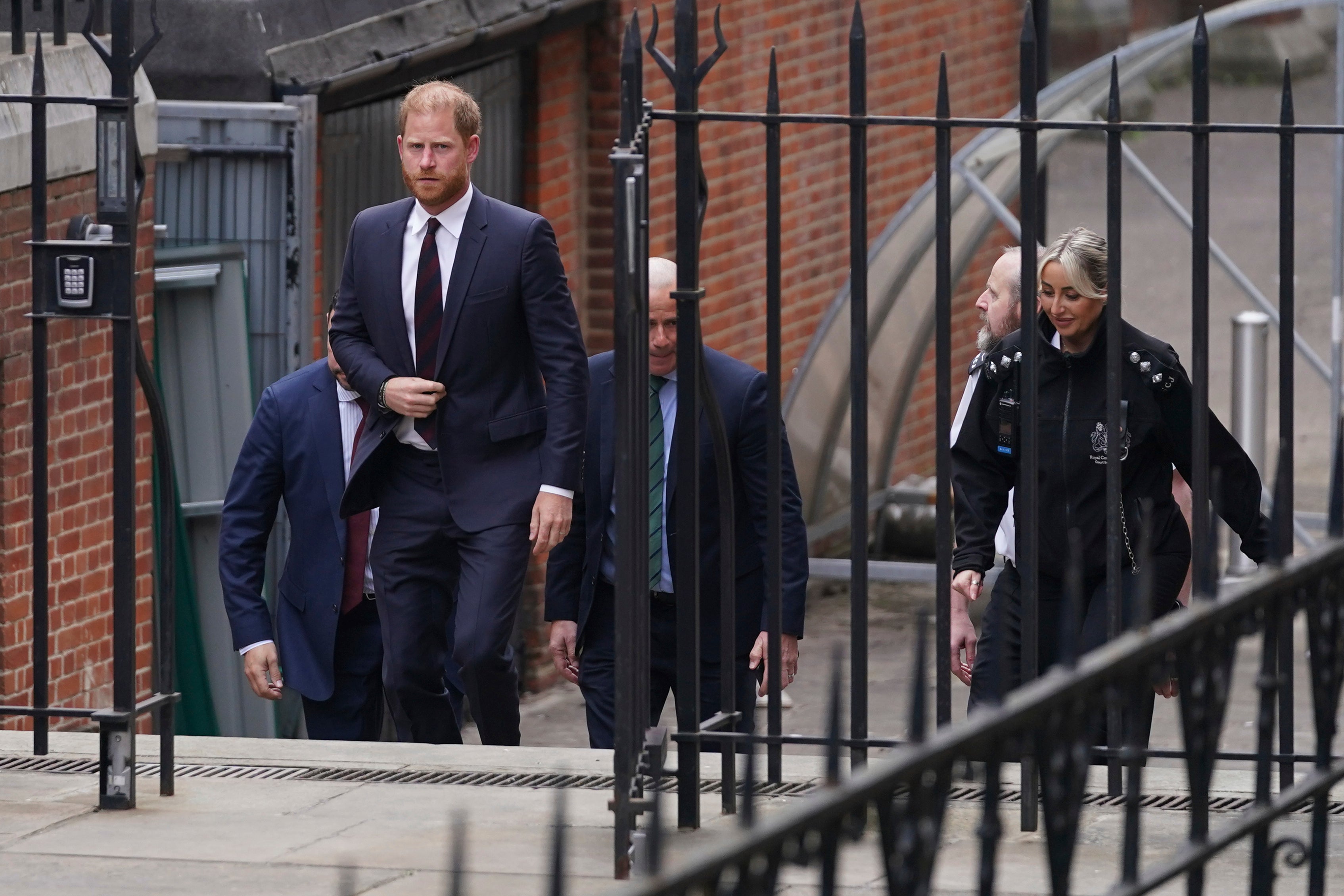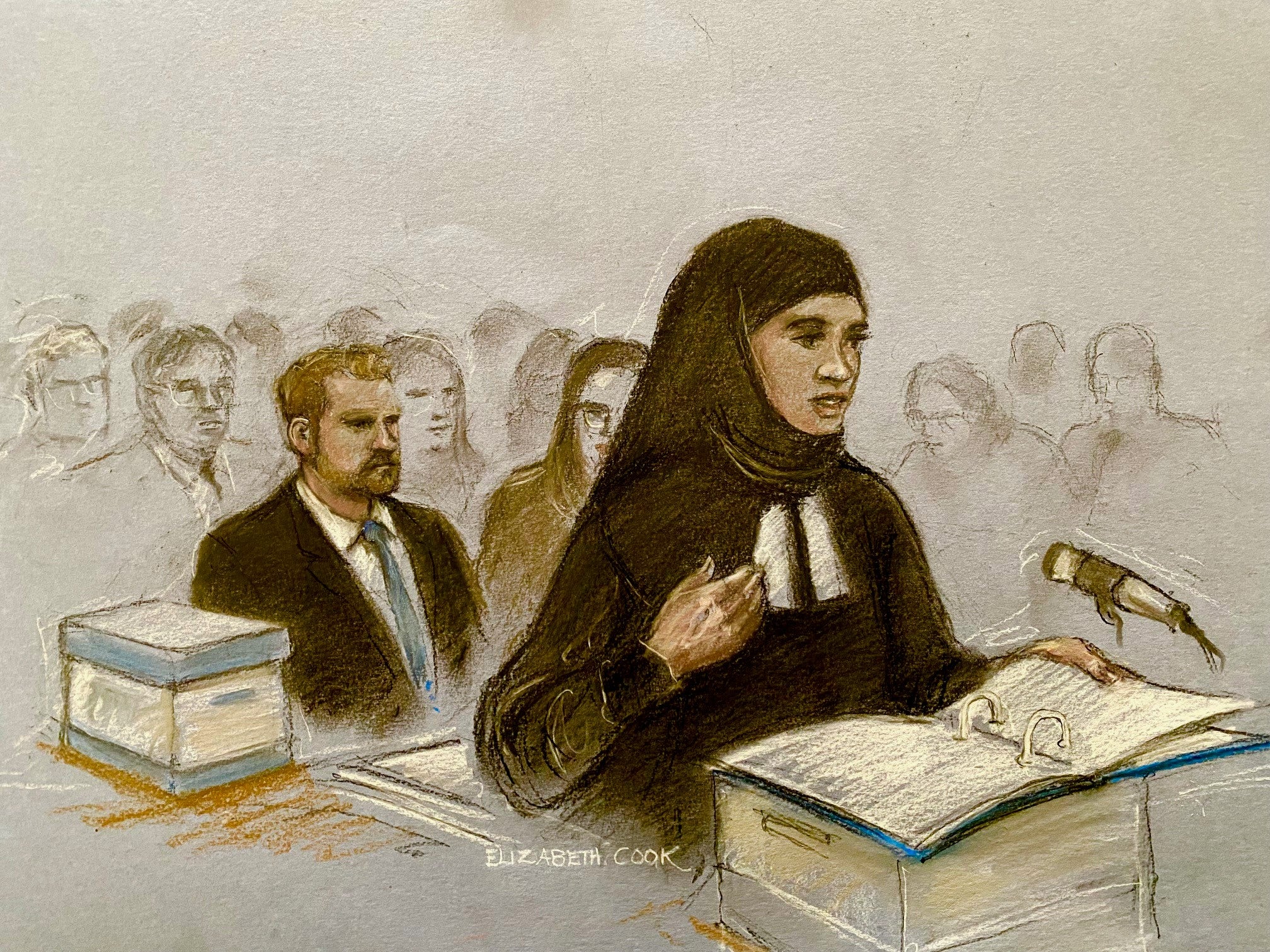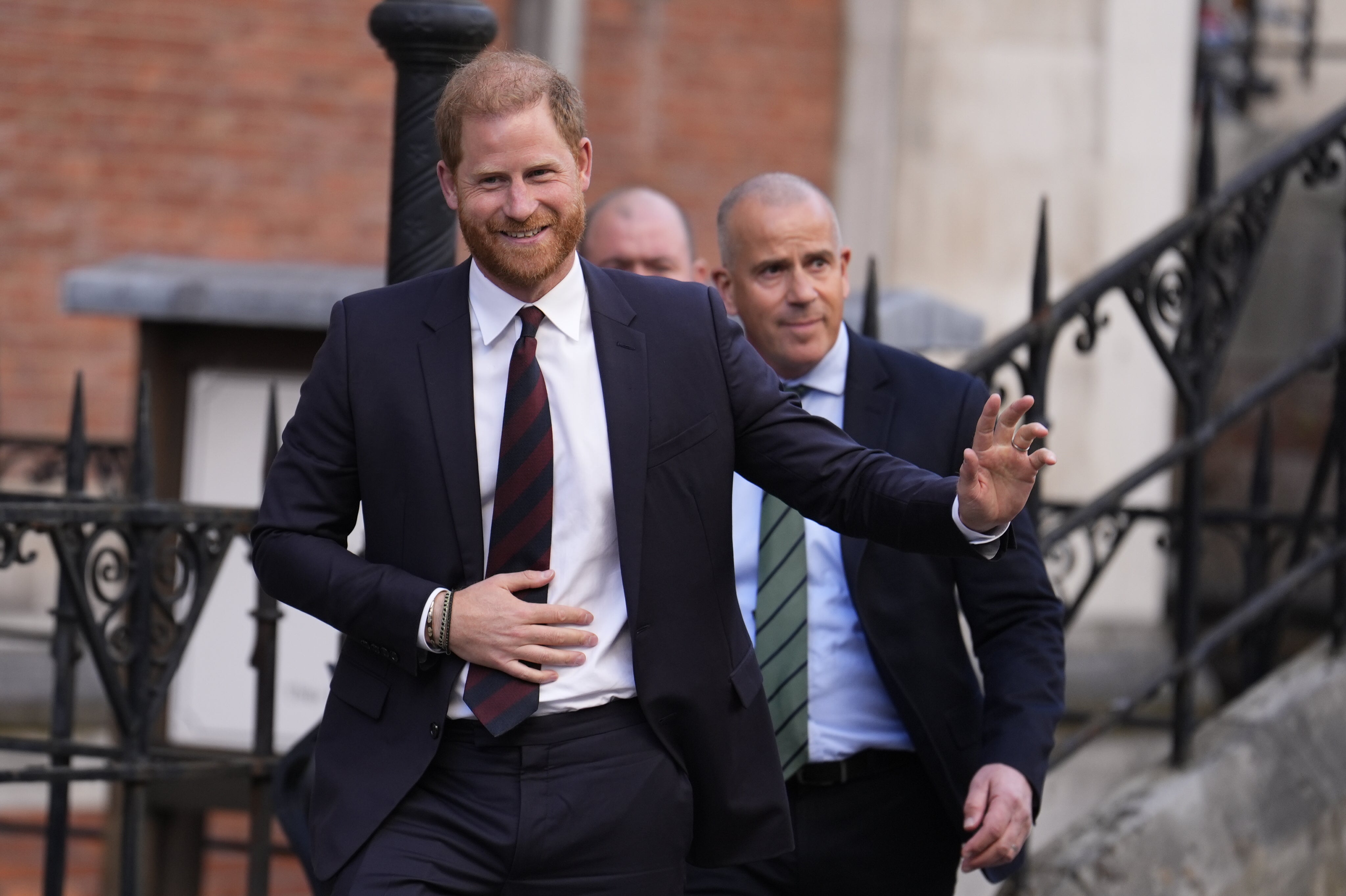The Duke of Sussex has lost his legal challenge against the Home Office over his UK security arrangements.
Prince Harry challenged the dismissal of his High Court claim against the Home Office, after the Executive Committee for the Protection of Royalty and Public Figures (Ravec) decided he should receive a reduced degree of security protection when in the country.
His barrister told a two-day hearing in April that the decision - made after he stepped down as a senior royal in 2020 - put the duke’s “life at stake”.
But in a judgement handed down on Friday afternoon, the Court of Appeal dismissed the duke’s challenge.
Delivering the court’s ruling, Judge Sir Geoffrey Vos said although the duke’s arguments were “powerful and moving”, he “could not say that the Duke’s sense of grievance translated into a legal argument for the challenge to Ravec’s decision”.
"The conclusion, in my judgement, with which my colleagues Lord Justice Bean and Lord Justice Edith agreed, was that the Duke of Sussex's appeal would be dismissed," he added.

The decision marks the latest development in the duke’s legal battle, which was brought to the Court of Appeal after his initial claim against the Home Office was dismissed by retired High Court judge Sir Peter Lane last year.
In April, barristers for the duke told the Royal Courts of Justice that Ravec’s decision meant he was “singled out” for “inferior treatment” and that his safety, security and life are “at stake”.
Harry attended both days of the hearing in London, and could be seen taking notes and talking with his legal team during the appeal. He was not present at Friday’s short hearing.

Reading a summary of the court’s decision on Friday, Sir Geoffrey said: “The duke was in effect stepping in and out of the cohort of protection provided by Ravec.
“Outside the UK, he was outside the cohort, but when in the UK, his security would be considered as appropriate.”
He continued: “It was impossible to say that this reasoning was illogical or inappropriate, indeed it seemed sensible.”
Sir Geoffrey also said Ravec’s decision was “understandable and perhaps predictable”.
The Home Office, which is legally responsible for Ravec’s decisions, opposed Harry’s appeal, with its lawyers telling the court it was taken in a “unique set of circumstances” and that there was “no proper basis” for challenging it.

In his written judgment, Sir Geoffrey said he did not think Harry had been able to demonstrate that the judge was wrong to determine that Sir Richard Mottram, then chairman of Ravec, had “good reason to depart” from its policy document.
He said: “In this area of high political sensitivity, the court will inevitably have considerable respect for Sir Richard as a decision maker, whose expertise and experience in the field of Royal protection is probably unrivalled.”
Ravec has delegated responsibility from the Home Office over the provision of protective security arrangements for members of the royal family and others, with involvement from the Metropolitan Police, the Cabinet Office and the royal household.
It is possible that Harry could challenge the court’s decision, which would see the case go to The Supreme Court. In order to do this, the duke would have to seek permission to appeal from the Court of Appeal itself.
Brown family ‘vindicated’ after court orders Government to set up public inquiry
Prince Harry not improperly denied UK-funded security detail after stepping down, court says
Court of Appeal affirms ruling on public inquiry in Sean Brown case
Starmer says ‘I get it’ after Labour’s ‘disappointing’ Runcorn defeat
Farage hails Reform as ‘main opposition’ after gaining MP and councils
UK set for cooler than average bank holiday after record-breaking hot weather







